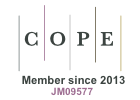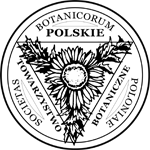Kształtowanie się zbiorowiska grzybów izolowanych z nasion łubinu żółtego (Lupinus luteus L.) pod wpływem okresu przechowywania [Shaping of the fungal communities isolated from yellow lupin seeds (Lupinus luteus L.) throughout storage time]
Bożena Cwalina-Ambroziak, Tomasz P. Kurowski
Abstract
The object of the experiment were seeds of two traditional cultivars of yellow lupin (Juno and Amulet) cultivated in 1999 in two crop-rotation with 20% and 33% yellow lupine contribution. The quantitative and qualitative composition of the fungal community colonizing the seeds were determined in the laboratory conditions after 0.5-, 1.5- and 2.5-year of storage time. In total 1077 fungal colonies were isolated from the lupin seeds. Fungi representing the species of Penicillium - 29.3%, Alternaria alternata - 26.7% and Rhizopus nigricans - 12.7% were isolated most widely. Among the fungi pathogenic to lupin, the species of Colletotrichum gloeosporioides (16.3% isolates) was dominant. The crop rotation with 20% lupin reduced the number of fungal colonies colonizing the seeds including the pathogens from the species of C. gloeosporioides. Seed disinfection decreased the total number of fungal colonies isolated from both cultivars. Higher number of C. gloeosporioides isolates was found in the combination with disinfected seeds. More fungal colonies were obtained from seeds of cv. Amulet than from those of cv. Juno. The storage duration had an effect on the population and the composition of species of fungi isolated from seeds of yellow lupine. With longer storage population of Penicillium spp. and Rhizopus spp. increased, whereas the population of C. gloeosporioides decreased.
Keywords
pathogenic fungi; seeds; storage time; crop rotation; cultivars of yellow lupin
DOI:
https://doi.org/10.5586/aa.2005.066
Journal ISSN:- 2300-357X (online)
- 0065-0951 (print; ceased since 2016)
| | This is an Open Access journal, which distributes its content under the terms of the Creative Commons Attribution License, which permits redistribution, commercial and non-commercial, provided that the content is properly cited. | |
| | |






